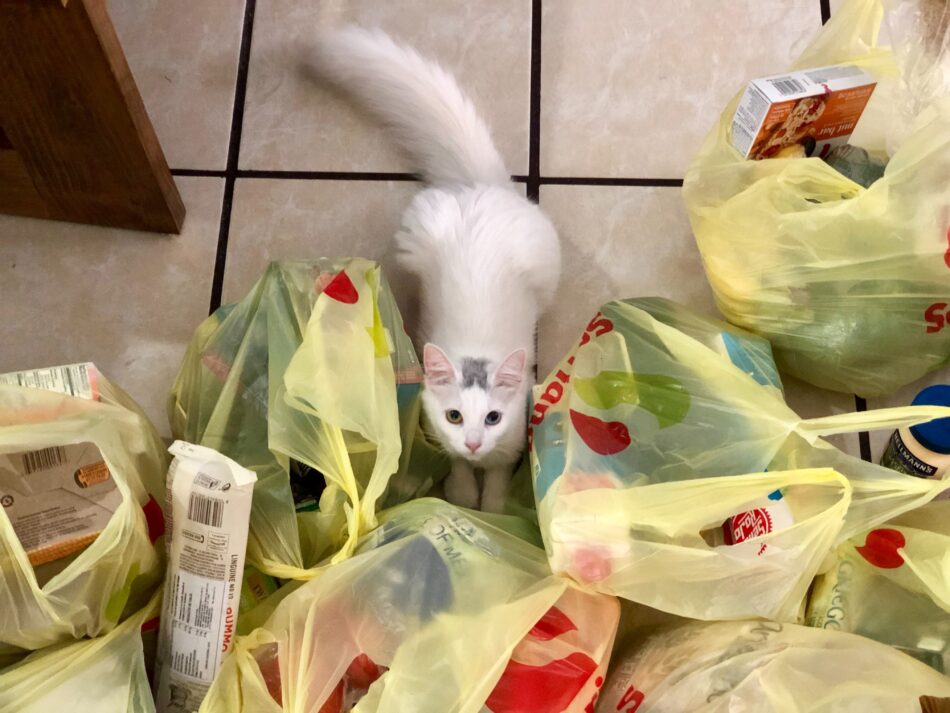How to Dispose of an Ozempic Pen
Ozempic pen use is rising. Safe disposal is vital to protect health and the environment. Learn how to dispose of Ozempic and other GLP-1 pens in this guide.

Plastic bags are one of the most widespread non-biodegradable items in landfills and oceans across the world. Recycling plastic bags is even more important than ever to avoid adding to this number and reducing the negative environmental effect their disposal can have. But what are plastic bags made of and how can you get rid of them safely?
Plastic bag recycling in the UK is becoming more commonplace and there are various options available to dispose of them responsibly. Understand how to get rid of your old, damaged, or unneeded plastic bags in a safe and environmentally friendly way with this guide.
Swedish engineer Sten Gustaf Thulin first invented plastic bags with the Swedish firm Celloplast patenting the one-piece polyethylene shopping bag in 1965. Funnily enough, plastic bags were invented to save the planet. This was because they offered an alternative to the paper bags used at the time, amid fears that too many would result in forests being cut down.
Today, plastic bags are commonly made from polyethylene. This manmade material consists of ethylene monomers in long chains, developed from natural gas and petroleum.
Plastic bags are made through a complex scientific process called blown film extrusion. The pellets of polyethylene are melted down and liquified in an industrial warehouse. Then they’re blown into a very thin material, which is manufactured into the bags we recognise.
Yes, plastic bag recycling in the UK is possible. However, it depends on the type of plastic that the bag is made of. In most cases, you can recycle plastic bags made of HDPE or LDPE in your domestic recycling bin – though it’s best to check with your local council or authority first.
For other types of plastic bags, you may need to take them to a nearby household recycling centre or supermarket with specific plastic bag waste bins. Businesses need to arrange commercial waste collection to recycle any plastic bag waste they generate.
Check what your local council accepts in kerbside recycling – as you might be able to easily dispose of plastic bags in your household recycling bins. However, bin contamination with non-recyclable materials could mean the entire load is sent to landfill. Putting plastic bags in general waste bins will also add to landfill.
In some cases, you can also recycle plastic bags at your local supermarket. There are collection points at Tesco, Sainsbury’s, The Co-Operative, Asda, Morrisons, and Waitrose in many towns and cities, where you can return your carrier bags. You can find these usually by the main entrance.
Ask your local council if there’s a recycling programme that may even provide a free collection service. Otherwise, visit your nearby household recycling centre where there may be banks specifically for plastic bags.
Even if you put your plastic bag securely in your household waste bin, they’re designed to be so lightweight that millions escape every year and wreak havoc. They clog drains, cause litter pileups, and endanger wildlife who can suffocate or choke on them.
Plastic bags that end up in landfill can take around 300 years to degrade. As they break down over this time, they release toxic particles due to the plastic they’re made from. These can leach into the oil and nearby water, contaminating water sources used by animals, which can affect the food chain higher up too.
The easiest alternative to plastic bags is reusable bags. Most major retailers sell these for a small charge, or you can even reuse your current plastic bags that may last for years. If you purchase a reusable bag, some retailers will even replace it for free once it reaches the end of its life or becomes badly damaged.
Since the introduction of the 5p charge in 2015 – and the increase to a minimum 10p charge in 2021 – sales of plastic bags are down by an incredible 90%. This has made a huge difference already. However, the UK is still guilty of using more than one billion plastic bags every year.
A few facts about plastic bags are that:
You can recycle your plastic bags for free by taking them back to your local supermarket and returning them to a collection point. These bags will then be reused or recycled by the supermarket. Alternatively, you can check your local council’s website and enquire about a collection programme for plastic bags.
Find out more about other rubbish streams.
Get a fast FREE quote for your plastic bag waste
Ozempic pen use is rising. Safe disposal is vital to protect health and the environment. Learn how to dispose of Ozempic and other GLP-1 pens in this guide.
Simpler Recycling regulations have raised many questions for businesses in England. Find expert answers to FAQs with this Simpler Recycling guidance.
Published 19th April 2022 by Mark Hall. Last modified 20th January 2025